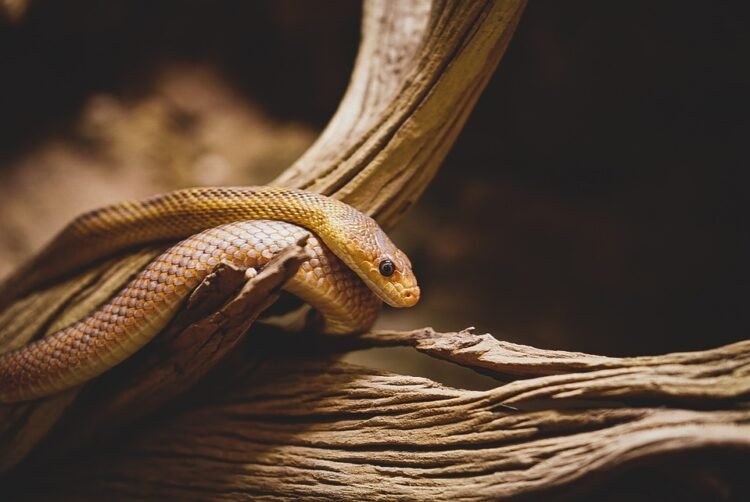Stay Safe: Essential Tips for Avoiding Snake Bites
Snakes are fascinating creatures that play an important role in our ecosystem. However, encountering a snake in the wild can be a frightening experience, especially if you are unsure of how to handle the situation. Snake bites can be dangerous and even deadly if not treated promptly. Therefore, it is important to educate yourself on how to avoid snake bites and what to do if you are bitten. In this article, we will discuss essential tips for staying safe and avoiding snake bites.
Know Your Local Snakes
One of the most important steps in avoiding snake bites is to familiarize yourself with the types of snakes that are native to your area. Different species of snakes have different behaviors and venom toxicity levels. By knowing which snakes are common in your region, you can better prepare yourself for potential encounters and take appropriate precautions.
Stay on Designated Paths
When hiking or exploring in snake-prone areas, it is important to stay on designated paths and avoid tall grass, rocks, and bushes where snakes may be hiding. Snakes are typically shy and will try to avoid humans if given the chance. By sticking to well-traveled paths, you can reduce your chances of coming into contact with a snake.
Wear Appropriate Footwear
Wearing closed-toe shoes or boots while hiking or walking outdoors can help protect your feet from snake bites. Snakes may strike at your feet if they feel threatened or cornered, so it is important to have a barrier between your skin and the snake’s fangs. Additionally, wearing long pants can provide an extra layer of protection against snake bites.
Use Caution Around Logs and Rocks
Logs, rocks, and other debris provide ideal hiding spots for snakes. When hiking or exploring in snake habitats, use caution when stepping over or moving these objects. Always check before placing your hands or feet in areas where snakes could be lurking. Slow and deliberate movements can help prevent surprising a snake and getting bitten.
Stay Calm and Back Away
If you encounter a snake in the wild, it is important to remain calm and avoid sudden movements. Back away slowly and give the snake space to retreat. Most snakes do not want to confront humans and will only strike if they feel threatened. By maintaining a safe distance and allowing the snake to move away, you can reduce the risk of a snake bite.
Do Not Try to Handle or Kill the Snake
Attempting to handle or kill a snake is never a good idea, even if you believe it is non-venomous. Snakes can strike quickly and unpredictably, and even non-venomous bites can lead to infection or allergic reactions. It is best to leave the snake alone and let it go on its way. Remember, snakes play a vital role in controlling rodent populations and should be respected for their role in the ecosystem.
Carry a Snake Bite Kit
When venturing into snake country, it is a good idea to carry a snake bite kit with you. These kits typically include items such as a suction device, bandages, antiseptic wipes, and instructions for treating snake bites. While a snake bite kit is not a substitute for professional medical care, it can help buy you time until you can reach a hospital or emergency services.
Know What to Do If Bitten
If you are bitten by a snake, it is important to remain calm and seek medical attention immediately. Do not try to suck out the venom or apply a tourniquet, as these methods can do more harm than good. Keep the affected limb immobilized and at or below heart level to slow the spread of venom. Remember as many details as possible about the snake’s appearance to help medical professionals identify the species and administer the appropriate treatment.
Common Questions About Snake Bites
Q: Are all snakes venomous?
A: No, not all snakes are venomous. In fact, the majority of snake species are non-venomous and pose little threat to humans. However, it is important to treat all snake encounters with caution and respect.
Q: What should I do if I see a snake in my yard?
A: If you encounter a snake in your yard, it is best to give the snake space and allow it to move on its own. Snakes play an important role in controlling pests and should be left alone whenever possible. If the snake poses a threat to you or your pets, contact a professional wildlife removal service for assistance.
Q: How can I snake-proof my home or property?
A: To reduce the likelihood of encountering snakes on your property, keep your yard well-maintained and free of clutter. Seal any gaps or cracks in your home’s foundation to prevent snakes from entering. Additionally, keep pet food and bird feeders secured to avoid attracting rodents, which can in turn attract snakes.
Conclusion
Snake bites can be a serious and potentially life-threatening injury if not treated promptly. By following the essential tips outlined in this article, you can reduce your risk of encountering a snake and know how to respond if bitten. Remember to stay informed about the types of snakes in your area, stay on designated paths while hiking, wear appropriate footwear, and avoid handling or killing snakes. With a little knowledge and precaution, you can enjoy the great outdoors safely and responsibly.
Stay safe and happy exploring!







